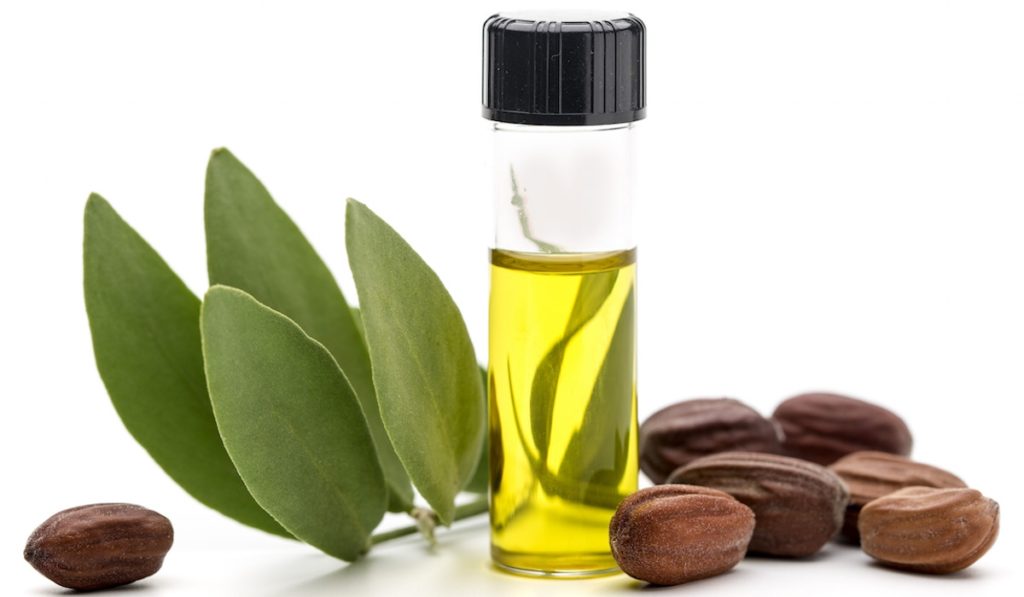The term carrier oil refers to the vegetable oil in which essential oils are diluted. This carrier oil becomes the vehicle through which the essential oil travels within the body in a slow and controlled manner. It can also be called base oil.
There are different types of carrier oils and these not only serve as transports of essential oils, but they also have therapeutic properties, essential fatty acids, and vitamins.In aromatherapy we use only non-refined vegetable oils; this means that no external heat or chemical solvents have been used for its extraction.
The vegetable oils found in supermarkets have gone through processes of high temperatures and the use of chemicals, where all their therapeutic properties are lost and are not recommended in aromatherapy. Mineral oils, such as baby oil, tend to clog pores and are not easily absorbed by the skin. Therefore, they are also not recommended in aromatherapy.
The benefits of the topical application of essential oils are due to the permeable power of the carrier oils that we use. Unrefined vegetable oils have an abundance of nutrients that are immediately absorbed into the skin.
How to dilute essential oils in carrier oils

1% dilution (for preparations for babies, the elderly, people with sensitive skin, facial skin care)
5 to 6 drops of essential oil per 1 Fl.oz. of carrier oil
2% dilution: This is the most common dilution, children over 5 years of age, adults without sensitivity problems
10 to 12 drops of essential oil per 1 Fl.oz. of carrier oil3% dilution: For acute cases such as muscle aches and cramps
15 to 18 drops of essential oil per 1 Fl.oz. of carrier oil
Common Carrier Oils
Avocado Oil

Avocado oil is extracted from the dried pulp and the inside of the shell, hydraulic dams are used followed by centrifugal extraction. It has a greenish color, which indicates that in addition to having vitamin A, D, lecithin, and potassium, it contains chlorophyll.
For rashes, eczema, dry and mature skin, and dry scalp. It is valuable for preparations for muscle pain relief. It has anti-wrinkle properties, and it is recommended for dry skin.
It is an ideal moisturizer after extreme exposure of the skin to the sun.
Aromandina products with Avocado Oil: Argan Elixir for Hair Loss
Jojoba

Jojoba is, in fact, a wax, not an oil. The seeds produce a liquid wax that does not turn rancid, which gives it long shelf life. It contains the anti-inflammatory agent myristic acid, which makes it a beneficial agent for rheumatism and arthritis. Its consistency is similar to human sebum, so it is recommended for acne, oily skin, oily scalp. It is also beneficial for cracked skin such as rashes and eczema.
Aromandina products with Jojoba Oil: Golden Jojoba, Argan Elixir for Dry Hair, Argan Elixir for Hair Loss
Coconut Oil

This oil is produced by pressing the pulp of the coconut. It inhibits moisture loss from the skin. It helps soften the skin and is an excellent moisturizer after the sun. It is solid in cold temperatures and liquid in hot temperatures.
Fractionated Coconut Oil
Fractionated coconut oil is separated from the whole coconut oil to produce a superior carrier oil that will not become rancid. The non-chemical separation process leaves no toxic waste to worry about. This fine carrier oil. It remains liquid even at very low temperatures.
It has an infinite useful life, it never gets rancid. Leaves the skin with a silky and smooth sensation, without feeling greasy.
Aromandina products with Fractionated Coconut Oil: Body Oils
Sweet Almond Oil

It is one of the most common carrier oils, its color is pale yellow and it is slightly viscous. It is known that the Romans used it for skin preparations. It is an excellent emollient for cracked hands. It nourishes dry skin and helps relieve inflammation. It can be beneficial to ease the itching produced by eczema, dermatitis, and psoriasis.
Midwives use the oil to massage the perineum and avoid tears.Remember that if the almond oil smells of almonds, then it is not a true oil. Almond oil should have a neutral odor.
Sesame Seed
Used for more than 5000 years in China, Egypt, and ancient Rome. High in vitamin E, calcium, magnesium, and phosphorus. Do not use the dark oil extracted from the toasted sesame seeds, but the cold pressed oil that is odorless and colorless.
Rosehips Oil

It is produced in Chile and has recently become very popular for its regenerative properties. It is extracted from the seeds of a rose bush that grows on in Southern Andes.
Clinical studies have been carried out where the rosehip has been found to have tissue regeneration properties for burns, wrinkles, and scars. This oil is excellent to reduce wrinkles, to counteract the dehydrating effects of the sun where you begin to notice the crow’s feet and fine lines around the lips.
Useful to attenuate scars either surgical or by accident and to reduce the formation of keloids.
It could be that all these qualities come from the high content of linoleic fatty acids.
In 1978, Dr. Carlos Amin Vasques reported that he found that rosehip oil was superior to any other treatment for severely burned patients, allowing accelerated healing and rejuvenation.
Foraha Oil
Calophyllum Inophyllum, also known as Foraha Oil, is renowned for its remarkable healing properties. It has been shown to aid healing of wounds, including severe cuts and burns, and acts as an active germicide to kill or prevent infection. Interestingly, while most vegetable oils are present in the ripened fruit, Foraha Oil forms as the nuts dry, a process that occurs over about eight weeks. The oil is extracted from the nuts by cold-pressing and filtration.
Benefits: Rejuvenating to mature skin, anti-inflammatory, assists with pain relief, speeds healing with cuts and burns, relieves sunburn, very effective on dry or scaly skin
Aromandina products with Foraha Oil: Therapeutic Carrier Oil
